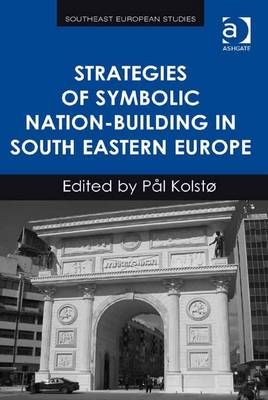Southeast European Studies
3 total works
Social Inequalities and Discontent in Yugoslav Socialism
Socialist countries like Yugoslavia garnered legitimacy through appealing to social equality. Yet social stratification was characteristic of Yugoslav society and increased over the course of the state's existence. By the 1980s the country was divided on socio-economic as well as national lines. Through case studies from a range of social millieux, contributors to this volume seek to 'bring class back in' to Yugoslav historiography, exploring how theorisations of social class informed the politics and policies of social mobility and conversely, how societal or grassroots understandings of class have influenced politics and policy. Rather than focusing on regional differentiation between Yugoslav republics and provinces the emphasis is placed on social differentiation and discontent within particular communities. The contributing authors of these historical studies come from diverse disciplinary backgrounds, linking scholarship from the socialist era to contemporary research based on accessing newly available primary sources. Voices of a wide spectrum of informants are included in the volume; from factory workers and subsistence farmers to fictional television characters and pop-folk music superstars.
Strategies of Symbolic Nation-building in South Eastern Europe
by Professor Pal Kolsto
After the conflagration of Tito's Yugoslavia a medley of new and not-so-new states rose from the ashes. Some of the Yugoslav successor states have joined, or are about to enter, the European Union, while others are still struggling to define their national borders, symbols, and relationships with neighbouring states. Strategies of Symbolic Nation-building in South Eastern Europe expands upon the existing body of nationalism studies and explores how successful these nation-building strategies have been in the last two decades. Relying on new quantitative research results, the contributors offer interdisciplinary analyses of symbolic nation-building in Albania, Bosnia-Herzegovina, Croatia, Kosovo, Macedonia, Montenegro, and Serbia to show that whereas the citizens of some states have reached a consensus about the nation-building project other states remain fragmented and uncertain of when the process will end. A must-read not only for scholars of the region but policy makers and others interested in understanding the complex interplay of history, symbolic politics, and post-conflict transition.
Austerity and the Third Sector in Greece
Organised civil society in Greece is generally regarded as weak with rankings for associational density, volunteerism and levels of social capital traditionally among the lowest in Europe. Austerity and the Third Sector in Greece explores the context behind the statistics and general perceptions of a society of takers, not givers. Stereotypes of a country living beyond its means have been exacerbated by the Eurozone crisis but, since 2008, there has in fact been a great proliferation of organised civil society initiatives in the country. Has the financial crisis seen a belated awakening of Greek civil society?
Offering a broad overview of contemporary civil society in Greece this book explores how various characteristics of the country's socio-political context have affected the development of the third sector and examines the effect of the economic crisis on it. Expert contributors combine macro-level analyses with local case studies to form a fascinating new study on the influences of national and regional context on civil society development. Their findings provide not only for a better understanding of similar movements, but also contribute to wider academic debates on societal responses to economic crises.


